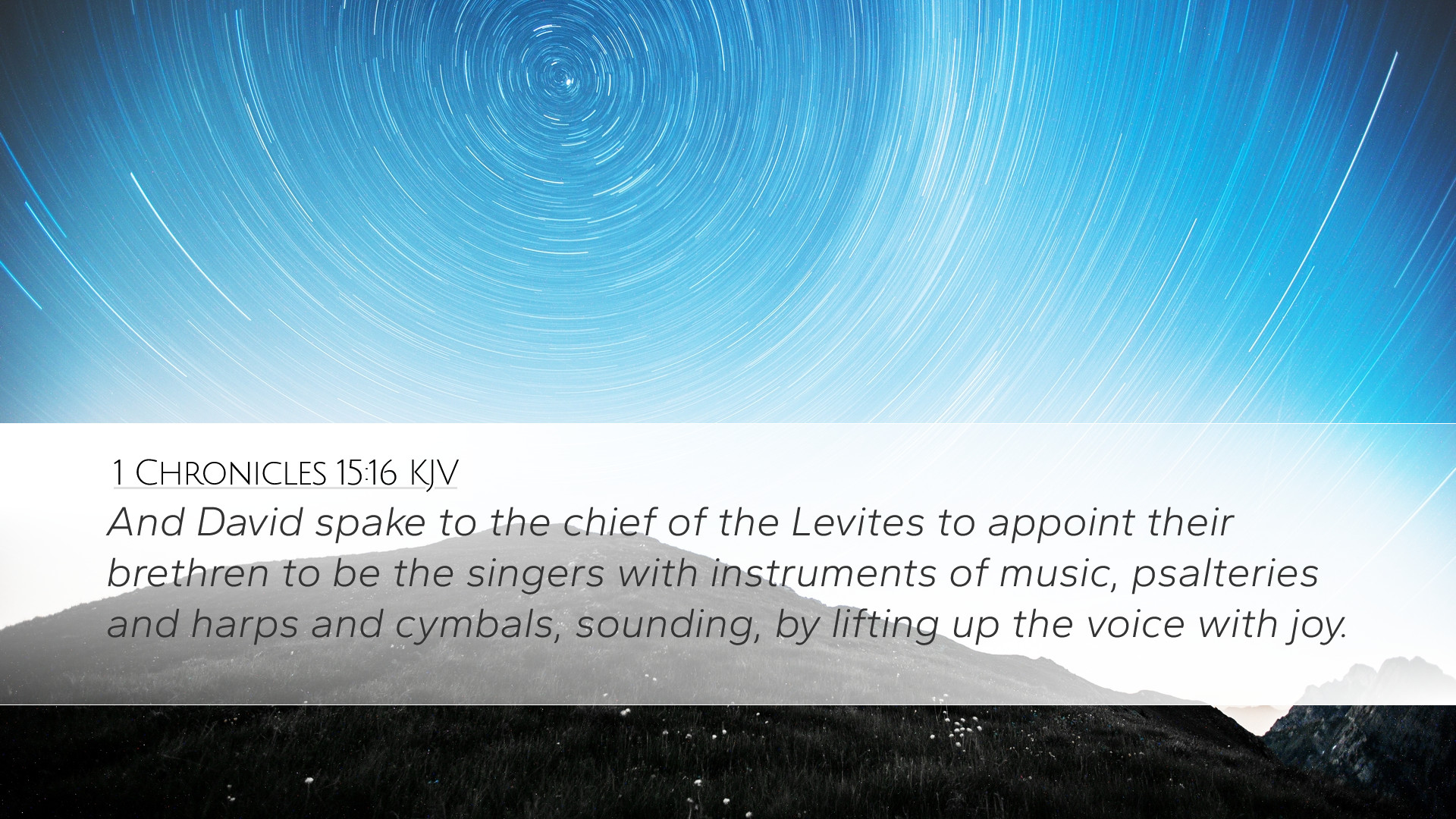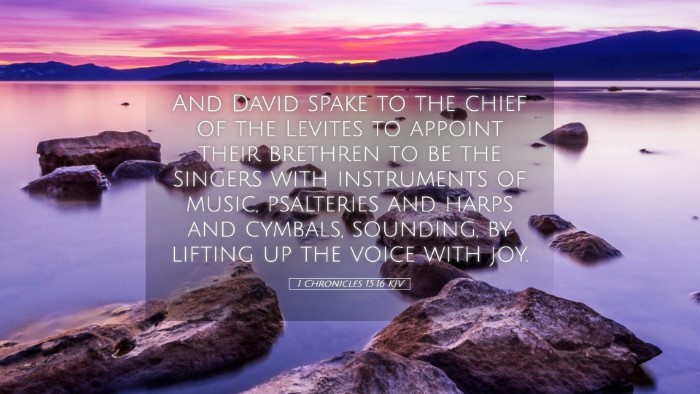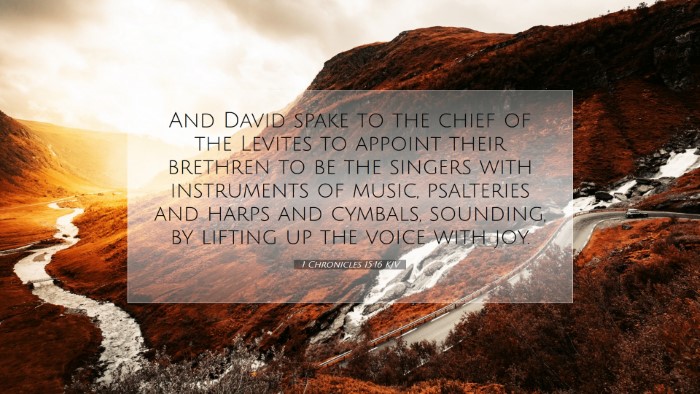Commentary on 1 Chronicles 15:16
Verse Reference: 1 Chronicles 15:16 - "And David spake to the chief of the Levites to appoint their brethren to be the singers with instruments of music, psalteries and harps and cymbals, to sound with joy." (KJV)
Contextual Background
This verse occurs in the narrative detailing David's preparations for bringing the Ark of the Covenant to Jerusalem. The Ark, representative of God's presence among His people, had been absent from its rightful place due to previous missteps, particularly the improper transportation of it in 2 Samuel 6. Hence, the transport of the Ark was a significant event involving worship, reverence, and order.
Interpretation and Insights
The focal point of 1 Chronicles 15:16 lies in the organized approach David undertook for worship. This reflects a broader theological theme in Scripture: God is not only to be worshiped, but worship should be conducted in accordance with His established standards.
1. David's Leadership and Reverence for Worship
According to Matthew Henry, King David’s initiative underscores the importance of leadership in spiritual matters. David speaks to the Levites, indicating a clear recognition of their pivotal role in leading worship. His approach showcases accountability and organization, evident in his commissioning of instrumentalists and singers. Worship is not left to chance; it is carefully structured to honor God appropriately.
2. The Role of Music in Worship
Albert Barnes emphasizes the use of music as an integral part of worship. Instruments such as psalteries, harps, and cymbals are expressly mentioned, indicating that music was not merely an accompaniment but a vital component of worship. This highlights the biblical precedence for music as a vehicle of expressing joy and reverence. Music serves to elevate the hearts of the congregation towards God, creating an atmosphere conducive for worship.
3. Unity and Collaboration Among the Levites
Adam Clarke draws attention to the communal aspect of this musical ministry. By appointing "their brethren," David promotes unity and teamwork among the Levites. This collaboration fosters a sense of community among the tribes of Israel and demonstrates that worship is an act that involves the whole body of believers. The charge given to the Levites calls for mutual support in their service to God, which is a model for the Church today.
Practical Applications for Today’s Church
- The Importance of Structure in Worship: Modern-day worship leaders should recognize the significance of organized worship, from song selection to the arrangement of order in services.
- The Integral Role of Music: Churches must value music as a vital expression of faith that can enhance worship experiences, acknowledging its capacity to communicate doctrine and evoke emotions associated with reverence.
- Encouragement of Collective Worship: Just as David involved others, contemporary worship should encourage participation from all members of the congregation, fostering a sense of belonging and shared purpose.
Theological Reflection
This verse encapsulates key elements of theology regarding worship: reverence, beauty, and community. The acts of worship depicted in 1 Chronicles 15 speak to the believer’s heart, calling them to recognize God’s holiness and His worthiness of praise. The collective action of praise mirrors the harmonious relationship believers have with one another and with God.
Conclusion
1 Chronicles 15:16 serves not only as a historical account but also as a profound template for worship in any age. It encourages leaders to assume responsibility for worship, making room for the creative arts while ensuring that all elements work towards a singular purpose: glorifying God. As today’s pastors, students, and theologians engage with this Scripture, let them seek to embody the heart of corporate worship exemplified by David and follow in his footsteps in a modern context.


